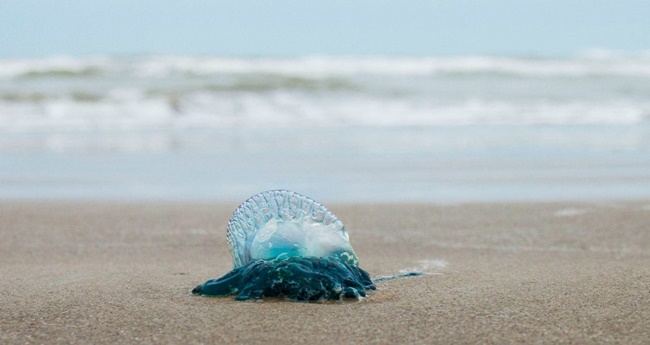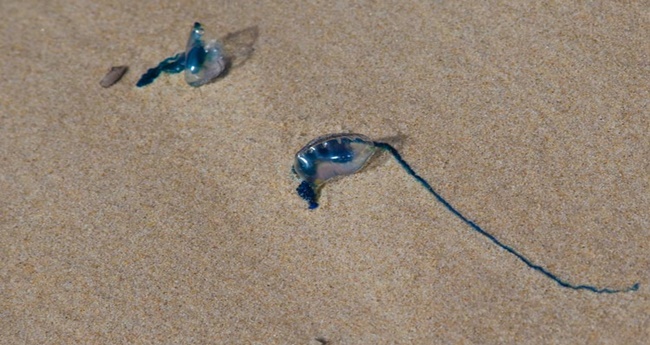Identifying the Venomous Blue Bottle Jellyfish and How to Treat the Sting
Venomous blue bottle jellyfish is a sea species that has strong tentacles and can inflict a nasty sting if it comes into contact with humans.
There are several uncommon marine life species that reemerge from time to time, one of which is the bluebottle jellyfish, which was recently seen on a Mumbai beach, causing quite a stir among the locals.
The emergence of blue bottle jellyfish, commonly known as the Portuguese man-of-war, has caused fear in Mumbai’s Girgaum Chowpatty, Aksa, and Juhu beaches in recent days.

According to The Indian Express, the blue bottle possesses a gas-filled bladder, whereas other siphonophores have jellyfish-like swimming bells. Every year, beautifully colored marine hydrozoans are carried onto the beaches by monsoon winds.
The “floating terror” was also sighted at North Goa’s famed Baga beach. According to The Hindu, the Drishti Marine, Goa Tourism’s beach safety office, issued a warning to tourists and local residents not to go swimming at Baga beach after lifeguards discovered a swarm of Portuguese man-of-war washing ashore.
Touching them can result in a burning feeling and rashes that last for 1-2 hours. Allergic people can develop life-threatening conditions. The venomous sea species has strong tentacles and can inflict a nasty sting if it comes into contact with humans. According to some experts, rising seawater temperatures may drive fish to congregate near the shore.

According to the report, the sting is not only uncomfortable, but it can also result in a red rash. The venom injected in the sting can also travel to the lymph nodes and cause severe discomfort.
The National Health Service of the United Kingdom recommends removing any stings stuck in the skin using a tweezer or the edge of a bank card and bathing the wound in warm water for up to 30 minutes. Pain relievers such as paracetamol and ibuprofen can be beneficial. According to new studies, it should be washed with diluted vinegar.
Do not urinate on the sting (just because you saw it on Friends! ), apply a cold pack, wash it in seawater, or bandage it.
You may also visit: Behold, The World’s Most Dangerous Jellyfish You Don’t Want To Be Around
